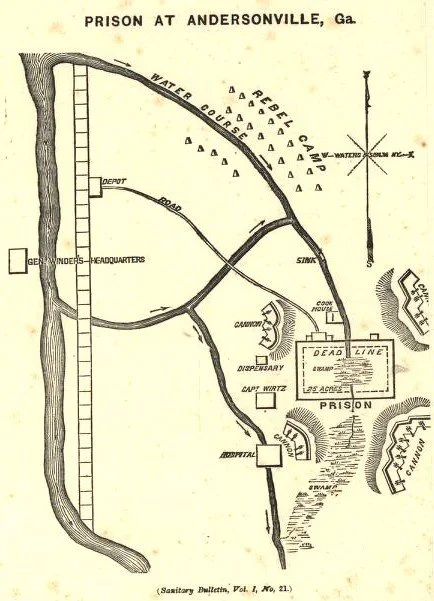
Starvation and Bad Treatment
When the Civil War began in April 1861, the United States had only a small standing army. Over the next year, volunteer regiments were recruited from all the Northern states. One such regiment was the 103rd Pennsylvania Volunteer Infantry, which was established in Kittanning, Pennsylvania, northeast of Pittsburgh, and enlisted men from the midwestern section of the state (Dickey 1910). Five of my relatives were among the men who volunteered for this regiment. These included my four-times great-grandfather Reese Thompson, who was nearly 50 years old but told the army he was 43, his 14-year-old son Milton, and his nephew and namesake Reese Shay.

Wide Awake in 1860
In 1860, my four-times great-uncle, Servetus Longley, invented and patented a street-sweeping machine. It’s an ingenious device, with brushes attached at an angle to a set of wheels so that the machine can be pushed along a street. This invention might have made a fortune for Servetus. In fact, in the fall of 1860, the city of Cincinnati, Ohio, granted him a three-year contract to use his machine to clean the streets in the city’s western district. They withdrew the contract a few weeks later and therein lies a tale.

Sir Knight
I stumbled into exploring the world of Freemasonry somewhat by accident. My aunt mentioned that her grandfather had been a Knight Templer. I found this baffling because the only Knights Templar I knew of were the militant medieval order disbanded by the pope in 1312. Soon after, while researching one of my great-great-grandfathers, I learned that he was also a Knight Templar, which cemented my interest in learning about the organization.

It Was a Most Thrilling Sight!
As I have written in a previous post, my great-grandmother Dorothy (Dollie) Loud grew up on cavalry posts across the western United States and, for high school, attended boarding school in Omaha, Nebraska. While Dollie was in Omaha during the mid-1890s, a particular highlight came when she and some of her school friends attended Buffalo Bill’s Wild West, most likely in 1896, when the show toured the Western states.
